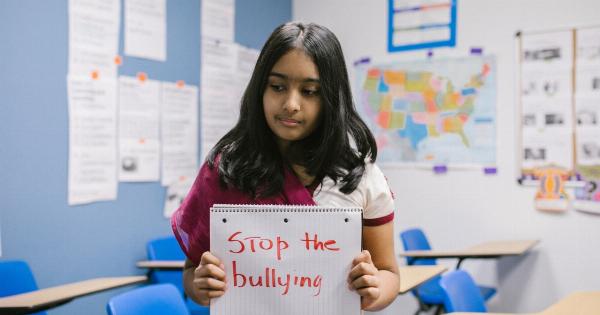Quarrels and conflicts are an inevitable part of any relationship, including those between parents.
However, extensive research suggests that children growing up in households where parents frequently engage in arguments or quarrels are at a higher risk of developing depression. While it is normal for parents to have disagreements, the constant exposure to conflict can have long-lasting effects on a child’s mental well-being.
Understanding the Impact of Parental Quarrels on Children
Children are highly observant and sensitive to the atmosphere and emotions around them. When parents argue or engage in frequent conflicts, it creates a tense and stressful environment that children find difficult to cope with.
The constant exposure to hostility and negativity not only affects their emotional development but also disrupts their sense of security and stability.
The Link Between Parental Conflict and Childhood Depression
Research studies have consistently shown a strong association between parental conflict and an increased risk of childhood depression.
According to a study published in the Journal of Family Psychology, children exposed to chronic parental conflict are twice as likely to develop depressive symptoms compared to children from low-conflict families. The negative impact of these conflicts often extends well into adulthood, with depression and anxiety disorders being more prevalent among individuals who experienced parental quarrels during their childhood.
Psychological Factors Contributing to Depression in Children
Children who witness their parents arguing regularly are more likely to internalize their emotions, blaming themselves for the conflict. This self-blame is a significant risk factor for the development of depression.
Additionally, constant exposure to conflict erodes the child’s sense of emotional security and stability, leading to feelings of fear, helplessness, and hopelessness.
Long-Term Consequences
The repercussions of growing up in an environment filled with parental quarrels can be far-reaching.
The emotional scars left by constant exposure to conflict can affect various aspects of a child’s life, including their social relationships, academic performance, and overall mental health. Such children are more likely to experience difficulty in forming healthy attachments and often struggle with low self-esteem and self-worth.
Preventing the Negative Impact
While it may not be possible to eliminate all conflicts between parents, there are several strategies that can help mitigate the negative impact on children:.
1. Communication
Open and honest communication between parents is crucial, ensuring that conflicts are resolved without hostility.
By demonstrating effective communication skills, parents can set a positive example for their children and promote healthy conflict resolution strategies.
2. Minimize Exposure
Parents should make a conscious effort to shield their children from intense arguments and conflicts.
While it may not be realistic to hide all disagreements, choosing an appropriate time and space to resolve conflicts can prevent children from bearing witness to highly emotional situations.
3. Seek Professional Help
If conflicts between parents become frequent, intense, or irreconcilable, seeking help from a professional, such as a family therapist or counselor, can be instrumental in learning productive ways to resolve differences.
Professional guidance can also aid in improving overall family dynamics.
4. Encourage Emotional Expression
Children should be encouraged to express their emotions freely and openly. Providing them with a safe space to articulate their feelings can help alleviate the burden of internalizing emotions, reducing the risk of developing depression.
5. Foster Supportive Relationships
Having positive and supportive relationships with extended family members, friends, or mentors can provide children with additional sources of emotional support. Such relationships act as a buffer against the negative effects of parental conflict.
Society’s Role in Addressing the Issue
It is crucial for society as a whole to recognize and address the impact of parental quarrels on children’s mental health.
Schools and communities can play a vital role in educating parents about healthy communication and conflict resolution techniques. Additionally, providing accessible mental health resources for children affected by parental conflicts is essential to ensure their overall well-being.
Conclusion
The connection between parental quarrels and an increased risk of depression in children cannot be ignored.
Constant exposure to conflict disrupts a child’s emotional development, contributes to feelings of insecurity, and increases the likelihood of developing depressive symptoms. By recognizing the impact of parental conflicts and implementing strategies to minimize their impact, parents and society can take significant steps towards creating a healthier environment for children to thrive.






























